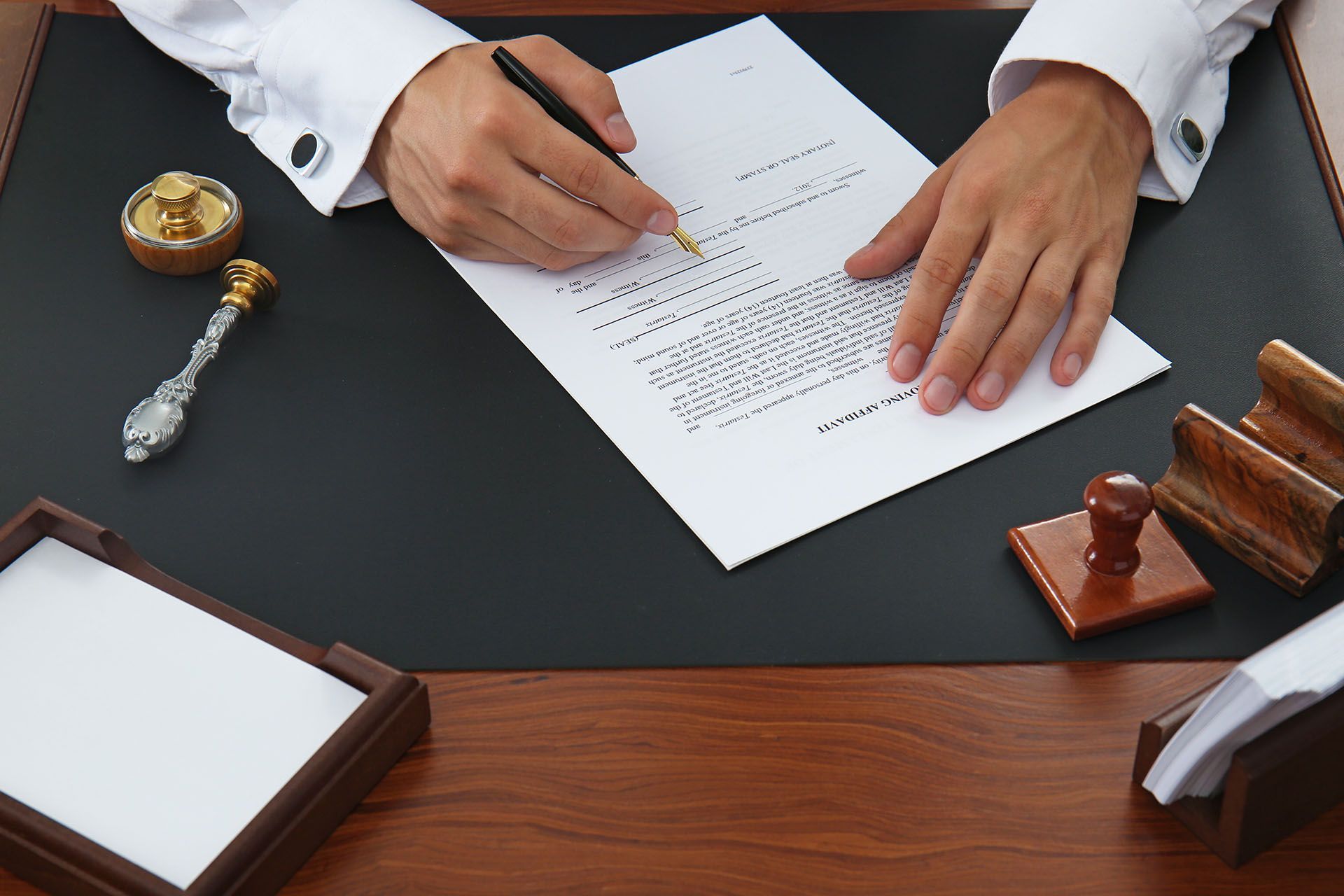NextMed Reviews, LLC
Blog

Section 18.001 of the Texas Civil Practice and Remedies Code is a powerful tool utilized by plaintiffs in litigation. The statute provides a relatively inexpensive method for a plaintiff to prove up medical expenses in litigation. While the use of Section 18.001 in Texas state courts is considered regular practice, its application in federal courts is currently unresolved. Under Texas law, the statute is construed to be purely procedural in nature. [1] The characterization as “procedural” has little impact on cases pending in Texas state courts. Federal courts sitting in diversity, however, are only bound to apply Texas laws that are “substantive” in nature. Federal courts are not bound by state laws that are purely procedural in nature. [2] Thus, the distinction between procedural and substantive laws plays a much larger role in federal court litigation. Federal courts asked to apply Section 18.001 to state law claims are forced determine whether the statute is purely procedural or is substantive enough to mandate its application. Unfortunately, federal courts in Texas are currently divided as to the application of Section 18.001. [3] The Fifth Circuit has not yet resolved the issue. Southern District of Texas – § 18.001 is Purely Procedural The Southern District of Texas has held that Section 18.001 is purely procedural and, therefore, not applicable in federal court. The court addressed Section 18.001 affidavits in Akpan v. United States [4] . The Court did not perform and in-depth analysis of Section 18.001. Instead, the Court found persuasive the Texas Supreme Court’s opinion in Haygood v. De Escabedo [5] that Section 18.001 is a purely procedural statute. [6] In 2023, the Southern District re-affirmed that § 18.001 has no application in federal court. [7] Northern District of Texas – § 18.001 May or May Not Apply The Northern District of Texas is the only federal court in Texas to have ruled that Section 18.001 is both purely procedural and also substantive enough to warrant application. The court’s interpretation of the statute appears to have evolved over time with differing results. The court first addressed the issue in 2006 in Rahimi v. U.S. [8] The court analyzed the statute under Erie while noting that the Texas Supreme Court had not yet characterized the statute as procedural or substantive. The court ultimately held that the statute was “so bound up or intertwined” with a litigant’s substantive rights that it is appropriate to apply the state statute in federal court. While this case appears to be the only reported case from the court addressing Section 18.001, at least one other case reached a contrary conclusion. In Baird v. Shagdarsuren, [9] the court reached the opposite conclusion. The court noted that the Texas Supreme Court had characterized Section 18.001 as purely procedural. The court reasoned that the prior decision in Rahimi decided that the statute should apply in federal court because the Texas Supreme Court had not yet characterized Section 18.001 as procedural. The Baird court was of the opinion that the Texas Supreme Court definitively resolved the inquiry and that the statute was procedural. In reaching its decision the Court noted that several courts within the North District of Texas had reached contrary decisions despite the Texas Supreme Court decision. [10] Subsequently, the court in the Mendez v. Berkshire Prop. Advisors, LLC case [11] noted that “The view that § 18.001 is inapplicable in federal court, however, is not unanimous within the [Northern’] District. Despite citing to various cases [12] holding that § 18.001 is substantive enough to warrant application, the court ultimately stuck by the decision in Baird. Western District of Texas – § 18.001 May or May Not Apply The Western District of Texas has held that Section 18.001 will apply in federal court diversity litigation. The Western District first addressed the issue in Cruzata v. Wal-Mart Stores Tex., LLC. [13] The Cruzata Court did not perform a lengthy analysis regarding the applicability of Section 18.001. The court noted that the defendants failed to cite to any authority which indicated that Section 18.001 was inapplicable to the case. The court found it persuasive that at least one other federal court [14] had applied the statute. The issue was again addressed in Rodriguez v. Liberty Mut. Ins. [15] The Rodriguez court addressed Section 18.001 when the issue was presented to it in a motion made expressly for the purpose of determining the applicability of the statute. The court performed an analysis of the statute and even noted the Texas Supreme Court’s designation that the statute was “purely procedural” as well as the Akpan decision by the Southern District of Texas. Nonetheless, the Rodriguez court held that Section 18.001 could be applied in the case. It should be noted, however, that the plaintiff’s motion to apply Section 18.001 was not contested by the defendant. The defendant did not oppose the application of the statute so long as the plaintiff did not use 18.001 affidavits to attempt to prove causation or conclusory damages. The Western District most addressed the statute in 2019 in the case of Grover v. Gov’t Emps. Ins. Co. [16] Again, the court noted the split of authority among federal courts. The court ultimately ruled that the statute should be applied. The court found that Section 18.001 provides a means for a plaintiff to prove its damages and cited to a line of Fifth Circuit opinions holding that, under Erie, state laws that govern how damages are proven are substantive. In 2024, the Western District acknowledged the split amongst Texas Federal Courts in Davis v. United States [17] . The court noted that it had recently sided with the courts determining that § 18.001 did not apply, but indicated that it continued to grant motions for the use of the statute in diversity actions if the motions were unopposed. [18] Eastern District of Texas – § 18.001 is Substantive The Eastern District of Texas has held in one case that Section 18.001 must be applied in federal court. [19] In reaching its holding, the court opined that “[a]t a minimum, § 18.001 is so bound up or intertwined with Texas substantive law that federal courts must apply [§] 18.001 to avoid an inequitable administration of the law.” [20] Despite reaching the conclusion that Section 18.001 applies to federal diversity cases, the court ruled that the time limits imposed by rule do not apply in federal court as they are “clearly procedural.” [21] [1] Haygood v. De Escabedo, 356 S.W.3d 390, 397 (Tex. 2011) (“But this statute is purely procedural, providing for the use of affidavits to streamline proof of the reasonableness and necessity of medical expenses.”). [2] See Hanna v. Plumer, 380 U.S. 460, 466-67 (1965). [3] Bagley v. Dollar Tree Stores, No. 1:18-CV-580 (E.D. Tex. December 2, 2019) (“Since the decision in Haygood, federal courts in Texas have been split on the issue of whether § 18.001 is procedural or substantive.”); See Grover v. Gov't Emps. Ins. Co., No. SA-18-CV-00850-FB, 2019 WL 2329321, at *1 (W.D. Tex. May 31, 2019) (observing the split and holding that the statute is substantive); Baird v. Shagdarsuren, No. 3:17-CV-2000-B, 2019 WL 2286084, at *2 (N.D. Tex. May 29, 2019) (citing to Haygood and holding that the statute is procedural); Akpan v. United States, No. CV H-16-2981, 2018 WL 398229, at *3 (S.D. Tex. Jan. 12, 2018) (same); Gorman v. ESA Mgmt., LLC, No. CV 3:17-CV-0792-D, 2018 WL 295793, at *1 (N.D. Tex. Jan. 4, 2018) (substantive); Holland v. United States, No. 3:14-CV-3780-L, 2016 WL 11605952, at *1 (N.D. Tex. July 21, 2016) (procedural); Cruzata v. Wal-Mart Stores Tex., LLC, No. EP-13-CV-00331-FM, 2015 WL 1980719, at *6 (W.D. Tex. May 1, 2015) (substantive). [4] Akpan v. United States, H-16-2981 (S.D. Tex. January 12, 2018). [5] Haygood, 356 S.W.3d at 397. [6] See Akpan, H-16-2981 at 3. [7] Perez v. Tyczynski, Civ. Action No. 5:21-CV-00109 (S.D. Tex. Feb 15, 2023). [8] Rahimi v. U.S., 474 F. Supp. 2d 825 (N.D. Tex. 2006). [9] Baird v. Shagdarsuren, No. 3:17-CV-2000-B (N.D. Tex. May 29, 2019). [10] Id. (“The Court recognizes that other courts in this district have allowed § 18.001 affidavits after the decision in Haygood. However, only two of these courts acknowledged the Texas Supreme Court’s characterization of § 18.001 as purely procedural. See Gorman v. ESA Mgmt., LLC, 2018 WL 295793, at *1-2 (N.D. Tex. Jan. 4, 2018) (Fitzwater, J.); Butler v. United States, No. 3:15-cv-2969-M, ECF No. 41, at 3-4 (N.D. Tex. June, 2, 2017) (Lynn, C.J.) (order). The court in Gorman only provided a “but see” citation to Holland and Haygood rather than addressing the Texas Supreme Court’s characterization head-on. See Gorman, 2018 WL 295793, at *1. The court in Butler also allowed § 18.001 affidavits and rejected the notion that the Texas Supreme Court’s characterization precludes § 18.001 from applying in federal court. Butler, No. 3:15-cv-2969-M, ECF No. 41, at 3-4.”). [11] Mendez v. Berkshire Prop. Advisors, LLC, Civ. Action 3:23-CV-2716-B (N.D. Tex. Aug 27, 2024); [12] See Chapman v. QuikTrip Corp., No. 3:21-CV-2314-S, 2022 WL 4002904, at *5 (N.D. Tex. Aug. 31, 2022) (Scholer, J.) (“[T]he Court finds that Section 18.001 is bound up in state substantive rights such that it must apply in order to avoid the inequitable administration of laws.” (quotations omitted)); Butler v. United States, No. 3:15-CV-2969-M, 2017 WL 11696361, at *2 (N.D. Tex. June 2, 2017) (Lynn, J.) (“The Court concludes that § 18.001 applies in this case, and rejects the notion that merely because the Texas Supreme Court characterizes a statute as procedural precludes its application in an FTCA action in federal court.”); Wilks v. Johnson, No. 4:20-CV-00006-P, 2020 WL 12151330, at *1 (N.D. Tex. Sept. 28, 2020) (Pittman, J.) (“[T]he undersigned conclude[s] that Section 18.001 is substantive rather than purely procedural because it relates to the issue of evidentiary sufficiency.”); Duplessis v. Singh, No. 2:21-CV-234-BR, 2023 WL 4010380, at *4 (N.D. Tex. June 14, 2023) (Reno, M.J.) (“[T]he Court finds § 18.001 is substantive in nature and thus applicable in federal court ....” (footnote omitted)); see also Schmidt v. Blue Monster Transp., Inc., 606 F.Supp.3d 424, 426-27 (N.D. Tex. 2022) (Hendrix, J.) (“This stark division demonstrates that discerning on which side of the substance/procedure line Section 18.001 falls is a bedeviling question. Regardless of where a court falls, however, there is an urgent need for the Fifth Circuit to step in and provide clarity.”). [13] Cruzata v. Wal-Mart Stores Tex., LLC, No. EP-13-CV-00331-FM (W.D. Tex. May 1, 2015). [14] Rahimi v. United States, 474 F. Supp. 2d 825, 829 (N.D. Tex. 2006). [15] Rodriguez v. Liberty Mut. Ins., No. SA-17-CV-928-XR (W.D. Tex. Oct. 3, 2018). [16] Grover v. Gov’t Emps. Ins. Co., No. SA-18-CV-00850-F (W.D. Tex. May 31, 2019). [17] Davis v. United States, SA-23-CV-00302-OLG (W.D. Tex. Mar 04, 2024) [18] Id. [19] Bagley v. Dollar Tree Stores, No. 1:18-CV-580 (E.D. Tex. Dec. 2, 2019). [20] Id. (internal quotations and citations omitted). [21] Id. see also Peals v. Quiktrip Corp., 511 F.Supp. 3d 770 (E.D. Tex. 2021); Vansill v. Dollar Tree Stores, Inc., 520 F.Supp. 3d 847 (E.D. Tex. 2021); Delarosa v. Great Neck Saw Mfrs., Inc., 565 F.Supp. 3d 832 (E.D. Tex. 2021).

Discovery regarding expert witnesses is generally governed by Rule 195 of the Texas Rules of Civil Procedure. [1] Parties are entitled to a statement of the compensation to be paid for the expert’s study and testimony in the case. [2] Rule 195 does not specifically outline that an expert’s personal finances are discoverable. However, parties are entitled to discover any bias of a testifying expert. [3] Proof of bias on the part of an expert witness may be offered to impeach the expert’s credibility. [4] Litigants often attempt to paint the picture that an expert has a financial incentive bias, however, the ability to flesh out this bias is not unlimited. The Texas Supreme Court has expressed concerns about allowing overly expansive discovery about testifying experts that can “permit witnesses to be subjected to harassment and might well discourage reputable experts” from participating in the litigation process. [5] Such discovery is aptly labeled a fishing expedition. The most probative information regarding the bias of a testifying expert comes from the expert himself. [6] Generally, an expert witness may be questioned regarding payment received for his work as an expert witness. [7] However, pretrial discovery of all of a witness’s accounting and financial records, solely for the purpose of impeachment, may be denied. [8] Some litigants have argued that they are entitled to know the litigation related income for an expert in terms of dollars and cents. This type of discovery is not permissible when the expert testifies as to his rate and how often he testifies for one side. [9] An expert may be required to provide an estimate, if he knows, of the percentage of his work that involves litigation. [10] There is no requirement that an expert unequivocally admit to a bias or interest. [11] Tax Returns A testifying expert’s tax returns are not discoverable provided that the expert can testify as to how much of his services are provided to one side in litigation. [12] If the tax returns are sought to show that an expert is biased simply because he receives most of his income as an expert for one side, then the returns would not lead to the discovery of admissible evidence. [13] In such situations, the expert’s right of privacy in his federal income tax returns is not outweighed by the pursuit of justice between the litigants in the underlying suit. [14] “Subjecting an expert medical witness in a civil case to produce income tax returns merely to show that he is a "defense" doctor, particularly when he has admitted that 90% of his work is for defendants, would permit experts on either side of the case to be subjected to harassment and might well discourage reputable experts from accepting employment in other cases.” [15] [1] Tex. R. Civ. P. 195. Items that must be disclosed for testifying experts are set out in Rule 195.5(a), which is copied below: (a) Disclosures. Without awaiting a discovery request, a party must provide the following for any testifying expert: 1) the expert’s name, address, and telephone number; 2) the subject matter on which the expert will testify; 3) the general substance of the expert’s mental impressions and opinions and a brief summary of the basis for them, or if the expert is not retained by, employed by, or otherwise subject to the control of the responding party, documents reflecting such information; 4) if the expert is retained by, employed by, or otherwise subject to the control of the responding party: A. all documents, tangible things, reports, models, or data compilations that have been provided to, reviewed by, or prepared by or for the expert in anticipation of the expert’s testimony; B. the expert’s current resume and bibliography; C. the expert’s qualifications, including a list of all publications authored in the previous 10 years; D. except when the expert is the responding party’s attorney and is testifying to attorney fees, a list of all other cases in which, during the previous four years, the expert testified as an expert at trial or by deposition; and E. a statement of the compensation to be paid for the expert’s study and testimony in the case. Amendments to the Rules of Civil Procedure (effective as to all cases filed on or after January 1, 2021) make clear that draft reports are not discoverable in any form. Tex. R. Civ. P. 195.5(d). Similarly, communications between a party’s attorney and an expert witness are protected from discovery except to the extent the communications relate to compensation, identify facts/data/assumptions that the attorney provided and that the expert considered relied on in forming opinions. Tex. R. Civ. P. 195.5(c). [2] Tex. R. Civ. P. 195.5(a)(4)(E). [3] Tex. R. Civ. P. 192.3(e)(5). [4] Tex. R. Evid. 613(b). [5] In re Ford Motor Co. , 427 S.W.3d 396, 397 (Tex. 2014) (citing Ex parte Shepperd , 513 S.W.2d 813, 816 (Tex. 1974). [6] Id . at 398. [7] In re Weir , 166 S.W.3d 861, 864 (Tex. App. – Beaumont 2005) (cited approvingly by In re Ford Motor Co. , 427 S.W.3d at 397. [8] Id . [9] See id . [10] Id . [11] Id . [12] Olinger v. Curry , 926 S.W.2d 832, 834–35 (Tex. App.-Fort Worth 1996, orig. proceeding) (cited approvingly by In re Ford Motor Co. , 427 S.W.3d at 397. [13] Id . [14] Id . [15] Id .

Requests for physical and mental examinations in Texas are governed by Rule 204 of the Rules of Civil Procedure. [1] While much may be written about the procedural mechanics of obtaining an order compelling an examination, the focus here is on the rules governing whether these examinations may be recorded or attended by third party observers. Some parties may agree to an examination. When no agreement is reached, the decision on whether to allow an examination is within the discretion of the trial court. The court may place reasonable limits regarding the time, place, manner, conditions, and scope of the examination. [2] Recording and Observation are Treated the Same While many cases discuss observers, courts do not distinguish between recording and a third party observer. [3] “[C]ourts consider the presence of a recording device to be an indirect form of a third-party presence, though less intrusive….” [4] As such, the law is generally the same for both recording and third party observation. Courts Strongly Disfavor Recording and Observation Both state and federal courts strongly disfavor recording and third-party observation of examinations. [5] Rationale for Exclusion of Recording and Observation The courts provide myriad reasons for the exclusion of observers/recording. Generally, “the presence of an attorney has a high probability of causing adverse effects on the examination, including the injection of an adversarial atmosphere into the examination and the possibility of making the attorney a witness.” [6] Other cited reasons include the following: “The introduction of a human or mechanical presence – whether a lawyer, a stenographer, a tape recorder, or other instrumentality – changes the nature of the proceeding.” [7] “[A]n observer, a court reporter, or recording device would constitute a distraction during the examination and work to diminish the accuracy of the process. [An observer could] potentially distract the examining [physician] and examinee thereby compromising the results of the examination. Moreover, the presence of the observer interjects an adversarial, partisan atmosphere into what should be otherwise a wholly objective inquiry.... The Court finds that the presence of the observer would lend a degree of artificiality to the examination that would be inconsistent with the applicable professional standard.” [8] “[A]llowing an observer or recording subverts the purpose of the rule allowing examinations, which is to put both the plaintiff and the defendant on an equal footing regarding the evaluation of the party's medical or psychological status…. [9] "[W]here one party has been examined by his or her doctors outside the presence of others or recording devices—the other party should be given the same equal opportunity.” [10] “[V]ideotape would give Plaintiffs an evidentiary tool unavailable to Defendant, who has not been privy to physical examinations made of [the plaintiff] by either his treating physicians or any experts he may have retained.” [11] Rare Situations Warrant Recording and Observation Although the general rule is to exclude recording and observation, some courts do permit this to some degree if there is a showing of special circumstances. [12] These “special circumstances” may include Situations in which the examinee is a minor Where the examinee does not speak English Where the examinee suffers from a disability that could impair his ability to communicate what occurs during the exam to his own attorney; and Other situations where the evidence suggests that recording would be advisable. [13] The cases tend to focus on whether an attorney may attend the IME. However, many of the “special circumstances” may be obviated by allowing a family member to attend the IME. The effect of permitting family members to attend has not been reported in the case law. Regardless, this would appear to be a simple fix and in line with traditional physician exams in which family members accompany each other to office visits. Conclusion Generally, courts strongly disfavor recording and third-party observation of physical/mental examinations. Some exceptions may apply in rare circumstances, the presence of which may be heavily litigated. Although examining physicians may have specific reasons for allowing or even encouraging recording/observation of IMEs, they are free to reject recording and third party observation as part of any IME protocol. If the court or the parties agree that special circumstances warrant otherwise, the physician may be asked to permit recording/observation. [1] The federal equivalent is found within Rule 35 of the Federal Rules of Civil Procedure. Texas state courts have generally looked to federal court cases as persuasive authority on the topic of recording/observing IMEs. Much of what is written below stems from either federal cases or Texas state cases drawing upon holdings in federal cases. [2] In re UV Logistics , 682 S.W.3d 612 (Tex. App. – Houston 1st District 2023); see also Tex. R. Civ. P. 204.1(d). [3] In re UV Logistics , 682 S.W.3d at 619 (citing to Holland v. U.S., 182 F.R.D. 493, 495 (D.S.C. 1998)). [4] In re UV Logistics , 682 S.W.3d at 619 (citing to Tomlin v. Holecek , 150 F.R.D. 628 (D. Minn. 1993)). [5] In re Soc'y Our Lady of the Most Holy Trinity , 622 S.W.3d 1 (Tex. App. – Corpus Christi 2019) (“Under federal law, third-party observations and recordings of examinations are disfavored.”); In re UV Logistics , 682 S.W.3d at 619; In re Boerne Hotel , Ltd., 13-23-00437-CV (Tex. App. – Corpus Christi Feb 14, 2024) (“All examinations conducted pursuant to Rule 204 are litigation-driven, and such examinations are not recorded as a matter of course.”); In re Redbird Trails Apartments , No. 05-20-00284-CV (Tex. App. – Dallas Jun 24, 2020) (Thus, in the absence of proof of special circumstances or a particularized need for videotaping or having an attorney present at the opposing party's examination, one party should not be required to videotape the examination when the other party did not.”); In re The Complaint & Petition of Callan Marine, Ltd. , Civil Action 4:21-cv-01938 (S.D. Tex. Sep. 8, 2021) (“[T]he overwhelmingly majority of district courts to consider the issue have refused to permit third-party observers, including attorneys, from attending Rule 35 examinations.”). [6] William Scott Wyatt & Richard A. Bales, The Presence of Third Parties at Rule 35 Examinations, 71 Temp. L. Rev. 103, 127 (1998); See also Jackson v. Harris Cnty. , No. H-17-3885, 2019 WL 2544058, at *1 (S.D. Tex. June 20, 2019) (refusing to allow plaintiff's counsel to attend a medical examination because a lawyer's attendance constitutes a distraction and introduces an adversarial character into the process). [7] Ornelas v. S. Tire Mart, LLC , 292 F.R.D. 388, 395–397 (S.D. Tex. 2013) (collecting cases). [8] Romano v. II Morrow, Inc. , 173 F.R.D. 271, 273-74 (D. Or. 1997) (quoting Shirsat v. Mutual Pharm. Co., 169 F.R.D. 68, 70–71 (E.D. Pa. 1996)). [9] Tarte v. United States , 249 F.R.D. 856, 859 (S.D. Fla. 2008). [10] In re Soc'y Our Lady of the Most Holy Trinity , 622 S.W.3d at 13. [11] Holland v. U.S. , 182 F.R.D. 493, 495 (D.S.C. 1998). [12] In re UV Logistics , 682 S.W.3d at 623. [13] Id.
Disclaimer: The information on this site is for general information purposes only. The information you obtain at this site is not, nor is it intended to be, legal advice. Any reliance placed on such information is strictly at your own risk.


